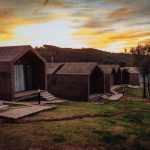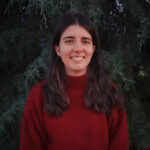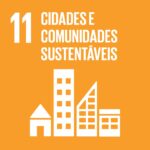
Planning your summer vacation? Discover these 5 green accommodations in Alentejo
Peggada has made a selection of some of the most amazing and sustainable housing in Alentejo. Now, all you have to do is book and
We didn't find any happenings mapped to your criteria.
Try the traditional search to find articles not yet mapped with RUA.
We didn't find any happenings mapped to your criteria.
Try the traditional search to find articles not yet mapped with RUA.
We didn't find any happenings mapped to your criteria.
Try the traditional search to find articles not yet mapped with RUA.
We didn't find any happenings mapped to your criteria.
Try the traditional search to find articles not yet mapped with RUA.
Avoiding landfills, this project takes advantage of the existing collection circuits and existing equipment in Cascais to transform food waste into energy.
Cascais is the first municipality in the country to collect bio-waste throughout its territory. The expansion of what started as a pilot project began in October 2022 and has recently ended with the coverage of 30 more streets.
In this initiative, the organic residues are collected, separated and reused
for energy production, with the participation of the entire local community.
The necessary equipment was distributed at the door of the citizens, namely a 7 liter container and a roll of green bags (destined for the placement of food leftovers, degraded food and leftovers from meal preparation), as well as information about this type of waste.
People just need to close the bag and place it in the common garbage container, and then it will be collected by the usual trucks from Cascais Ambiente (the company responsible for waste management in the municipality). The bags are taken to Tratolixo where, through an optical reader, the bio-waste is separated from the undifferentiated waste and reused for energy production.
In the areas already covered by the project the recycling rate (including paper, glass,
plastic and organic waste) increased from 12 to 40%. This shows that bio-waste separation helps the local community to be more conscious about the waste it produces, adopting more environmentally friendly behaviors.
Compared to other collection systems, “optical bag collection has proven to be an effective way to separate and valorize food waste, with a low financial impact on collection operations,” since it uses the same trucks, containers, and human resources, says Luís Almeida Capão, chairman of the Board of Cascais Ambiente, the company responsible for waste management in the municipality, in a statement. From an environmental point of view, there are also savings, since there is no washing requirements and no greenhouse gas emissions.
The optical bag collection system is also being implemented in the municipalities of Oeiras, Mafra, and Sintra.
In the future, Cascais Ambiente wants to add other materials, such as textiles and sanitary textiles (diapers, sanitary pads, tampons, among others).
Cascais thus anticipates the mandatory selective collection of bio-waste, which will come into force as of December 31, 2023, at a national level. It is estimated that
more than 30 thousand tons of organic waste will be collected annually in the
county, the equivalent of almost 9 GW of energy per year. In addition, the initiative integrates a strategy for managing urban waste in Cascais to achieve 60% reuse and recycling by 2030.


Peggada has made a selection of some of the most amazing and sustainable housing in Alentejo. Now, all you have to do is book and

Artists who use nature sounds in their songs can independently include “Nature” in the list of artists. With the Souns Right Project, part of the

The debate on climate action has recently been invaded by the term “Carbon Offsetting”. Peggada explains to you what is this thing of creating a

This article addresses an action that promotes change towards more inclusive, safe, resilient and sustainable cities and communities, helping toreduce the adverse environmental impact of cities.
 To discover businesses that are actively working to contribute to this Sustainable Development Goal, click here.
To discover businesses that are actively working to contribute to this Sustainable Development Goal, click here. To read news, interviews or tips related to this Goal, click here.
To read news, interviews or tips related to this Goal, click here.Esta publicação também está disponível em:
![]() Português (Portuguese (Portugal))
Português (Portuguese (Portugal))

